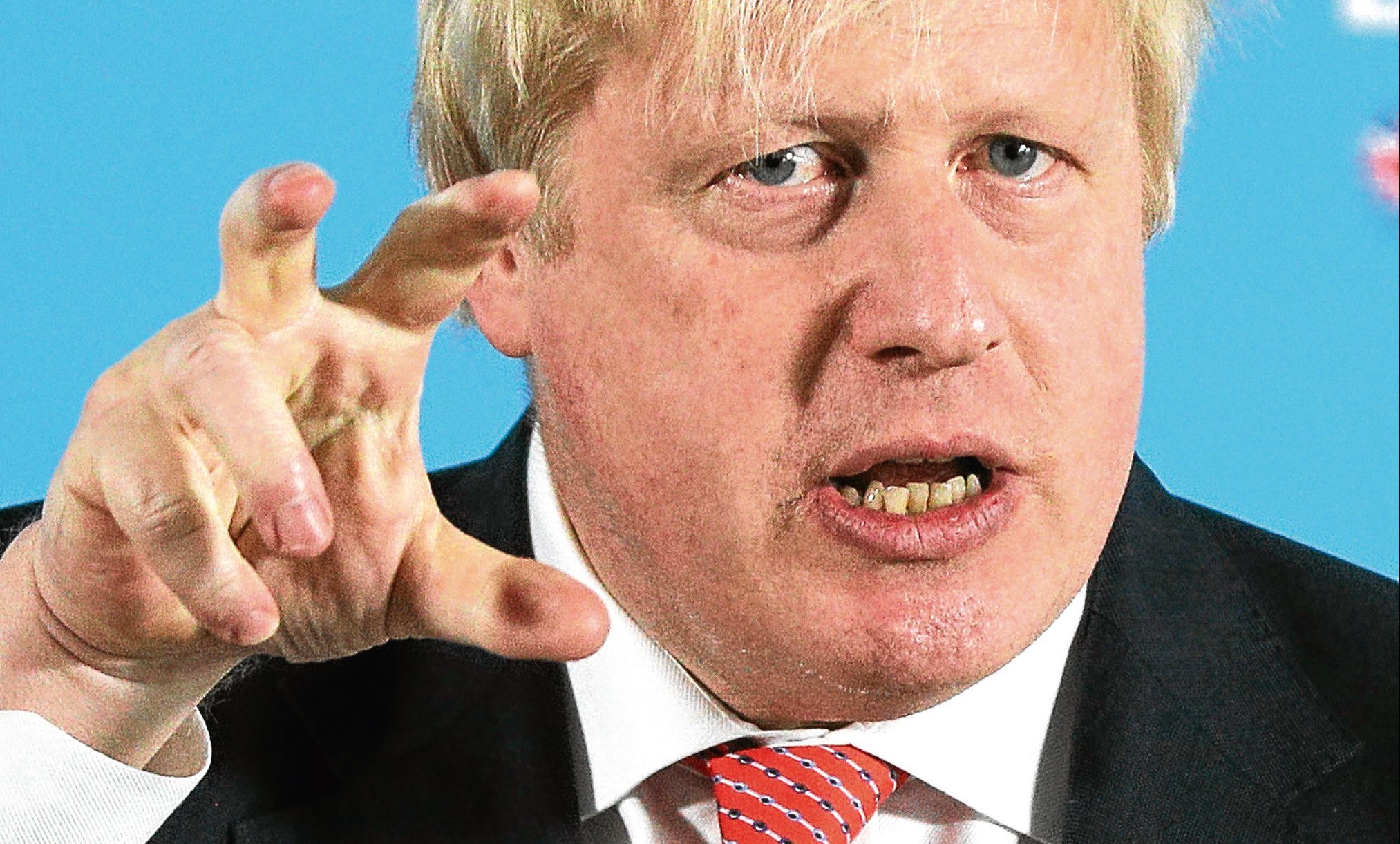Madam, – The landmark decision of the inner house of the Court of Session declaring illegal the decision of Prime Minister Boris Johnson to prorogue parliament until October 14 is not only a vindication of parliamentary democracy over an untrammelled executive but another example of how law is intruding into what was originally the sole preserve of politics.
This was the theme of the Reith Lectures which were delivered this year by Lord Jonathan Sumption the former UK Supreme Court judge who disputes the unanimous decision of the Court of Session to declare the prorogation of parliament as illegal on the grounds that it is a political act and incapable of review by the law.
Unusual times, however, call for extraordinary decisions and the Court of Session fortunately has a power called the nobile officium which to paraphrase it ridiculously briefly, is a power where there is no legal rule adequately covering a given situation, for the court to grant any remedy or make any order.
This is a power singular to Scotland’s highest court and is not available to English courts.
It is to be hoped therefore that when the case is reviewed on appeal in the UK Supreme Court, that court remembers that it is reviewing a Scottish case and applies Scottish not English legal rules.
There is one aspect of this whole business on which the Supreme Court should focus which is I think a judiciable matter in both English and Scottish jurisdictions and that is a matter of abuse of process – not a matter of whether the act of prorogation was legal or illegal as a matter of constitutional law.
Boris Johnson in presenting his case for the prorogation of parliament told the Queen, whose consent according to UK constitutional law is an essential step in the process of approving an executive act of this kind, that the purpose of the prorogation was for one reason and not for the underlying reason of making it as difficult as possible for parliament to hold the executive to account.
There is an important distinction in arguing in general, if duplicitous, terms for a prorogation in the aforesaid letter to MPs which set out the reasons for prorogation he proposed to explain to the Queen – for dissimulation is not uncommon in political debate – and using these same arguments to obtain the sovereign’s signature to the prorogation.
Deceiving the sovereign as part of the legislative process is clearly illegal.
Finally the howls of protest from Brexiteers and members of the ERG that the Scots judges are politically motivated are sheer nonsense. Not one of the three members of the inner house has any history of party political activity.
Alexandra MacRae.
8 Jubilee Park,
Letham,
Angus.
Anti-Scottish attitudes prevail
Madam, – The letter ‘Whinging jocks’ (The Courier, September 13) is either from a brave, deranged individual or is cleverly crafted satire.
My money is on the latter as it exposes the anti-Scottish attitudes prevalent amongst the 100,000 or so Tory voters who seem to prefer Boris and Brexit to retaining the Union.
In my thesaurus ‘whinging’ means standing up for what you believe in when others are trying dismantle it piece by piece.
Well done Les Mackay. If I’m wrong then move house and change your name quickly by deed poll!
Howard Davies.
2 Station Rd,
Invergowrie.
‘Futility’ of electric vehicles
Madam, – I am sure that neither Mr Harry Key nor myself has anything against the theory of vehicles being run by means of electricity but there is just so much misunderstanding about such a switchover happening to more than 38 million vehicles in the UK that we can see that it will just never take place.
In the finality of things, there will be no trouble generating sufficient electricity to power all those vehicles but making the power and getting it to the end-user are two very different things.
Why should we all pay for a massive 300% increase in our overhead grid power lines and have every street in the land dug up to lay heavier cables when hydrogen can be produced so easily as is currently being done in Orkney?
That fuel produces completely harmless exhaust gases, and once created in specific coastal tidal power stations, can be so easily put into ordinary road tankers and taken to traditional petrol stations?
Why should anyone want to plug an electric car into a power-point for several hours to fuel it up when a hydrogen car can be re-fuelled in the same time as a petrol or diesel vehicle?
Do the makers of electric vehicles not realise that the chemical contents of the necessary batteries are not only extraordinarily heavy but involve somewhat scarce metals which are, and will remain, in the hands of a very small number of countries and companies?
Fossil fuels must eventually diminish in quantity in the coming years but when they finally run out, electricity will not power vehicles – hydrogen will!
Archibald A. Lawrie.
5 Church Wynd,
Kingskettle.
‘Irrational’ car policies re-think
Madam, – Gordon Pay (Courier Letters, September 12), states thatbecause we in the UK must employ all means to try to offset global climate changes, we must switch cars from internal combustion to electric engines, which put out less CO2.
However, generating the extra electricity increases greenhouse gas release, risking worsening the climate.
Given that electric cars are, in every way, much more costly and less practical than those powered by petroleum, their rational adoption demands clear justification.
Since the UK puts out a negligible 0.3 of 1% of the planet’s manmade CO2 – Scotland a tenth of that- switching car engines from fossil fuels to electric power is of no real help to the Earth in offsetting climate changes.
These irrational car policies need to be re-thought, to prevent vast waste of resources.
(Dr) Charles Wardrop.
111 Viewlands Rd West,
Perth.
Decision flies in face of justice
Madam, – I concur with everything Gordon Kennedy states in his letter (The Courier, September 12, “Slap in Face” for Alesha’s family).
It is beyond belief that Aaron Campbell’s prison sentence is not for the rest of his life, let alone having his sentence reduced.
In God’s name why? This flies in the face of justice and surely has to be overruled for justice to prevail.
Cynthia Dye.
2 Burnside Road,
Invergowrie.
Scotland should decide its future
Madam, – Robert I G Scott (Letters, September 11) considers the attention the only political leader with a mandate granted by the Scottish electorate gets is more “than her status actually warrants”.
Since Nicola Sturgeon is our representative voice, does his complaint extend to Scotland as a whole? Since Mr Scott considers us to be no more important than the English county of Yorkshire, we can only conclude ‘yes’.
The main thrust of Ms Sturgeon’s argument is that Scotland should decide its own future.
Ken Clark.
c/o 15 Thorter Way,
Dundee.









